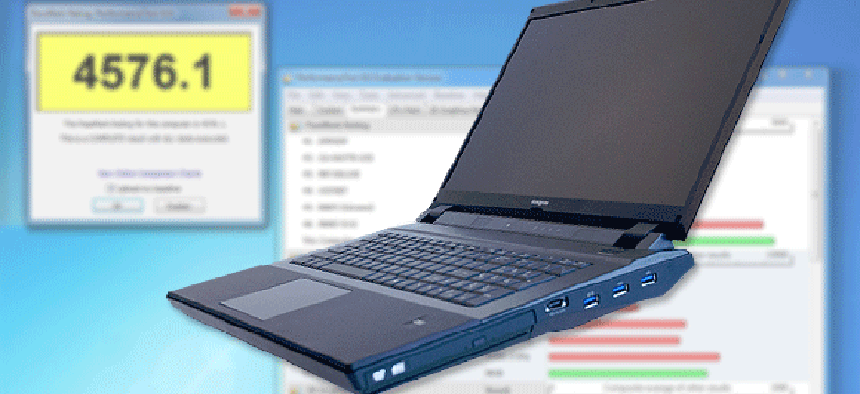Haswell chips can give a laptop workstation power


Connecting state and local government leaders
The Scorpius 2.0 is an example of what's possible with Intel's new low-power, high-performance processors.
I'm not really sure why Intel isn't pushing the new Haswell-based chips a little harder, as they seem to have been released with a whisper. When the first i-generation of chips was released -- the i3s, i5s and i7s -- there was a huge campaign to show how revolutionary they were compared to previous models. But now we are seeing the fourth generation Haswell-based chips, and almost nothing is being said about them.
There were complaints in June about the chips overheating when overclocked, which prompted Intel to limit overclocking to certain chips, but their performance would still seem to warrant more discussion. Only the actual computer manufacturers are making any sort of effort to educate people about the benefits of a Haswell-based systems. But then again, perhaps the performance speaks for itself.
Yes, they are amazing. For such low-power consumption, there’s more raw power than most people know what to do with. And even when they’re not running at maximum speed, they’ll still help extend battery life. Laptops with Haswell chips could help enable mobile computing and teleworking for agency employees who need a powerful system.
The latest product to take advantage of the Haswell Intel Core i7 processor is the Scorpius 2.0 notebook from Eurocom.
Even without the Haswell processor, the Scorpius is an impressive unit. It's got dual Nvidia GeForce GTX 780M graphics cards and 8G of DDR5 video memory driving its 17.1-inch screen. There are a lot of options for connecting devices into it too, including HDMI 1.4, Thunderbolt, four USB 3.0 ports and an eSATA/USB 2.0 combo port.
But what really blew us away was the performance. It scored 4,576 on the Passmark Performance Benchmarks without any overclocking at all. For a notebook, that is about as impressive as it gets today. Consider the fact that the powerful Tiki workstation got up to 5,618 last year using a previous generation processor, or the fact that the most modern workstation we've ever benchmarked, the Origin Systems Chronos Pro got 6,131 just last month. But they didn't have access to this new chipset, which apparently gives mere notebooks access to workstation-level performance.
That is not to say that the original jump to the i-line of chips wasn't impressive. Prior to that, even a custom-built workstation built for speed couldn't top the 2,200 Passmark rating. But it's important to note that despite the lack of fanfare, another great leap forward has occurred. The Eurocom Scorpius 2.0 notebook is a harbinger of a new generation of computers. And it's a good idea to insist on Haswell-based i3, i5 or i7 chips right now for any computer build moving forward. Anything else would just be hitching your wagon to a much slower horse.




